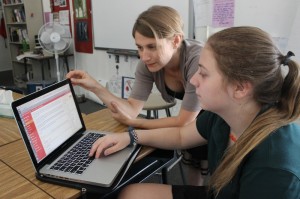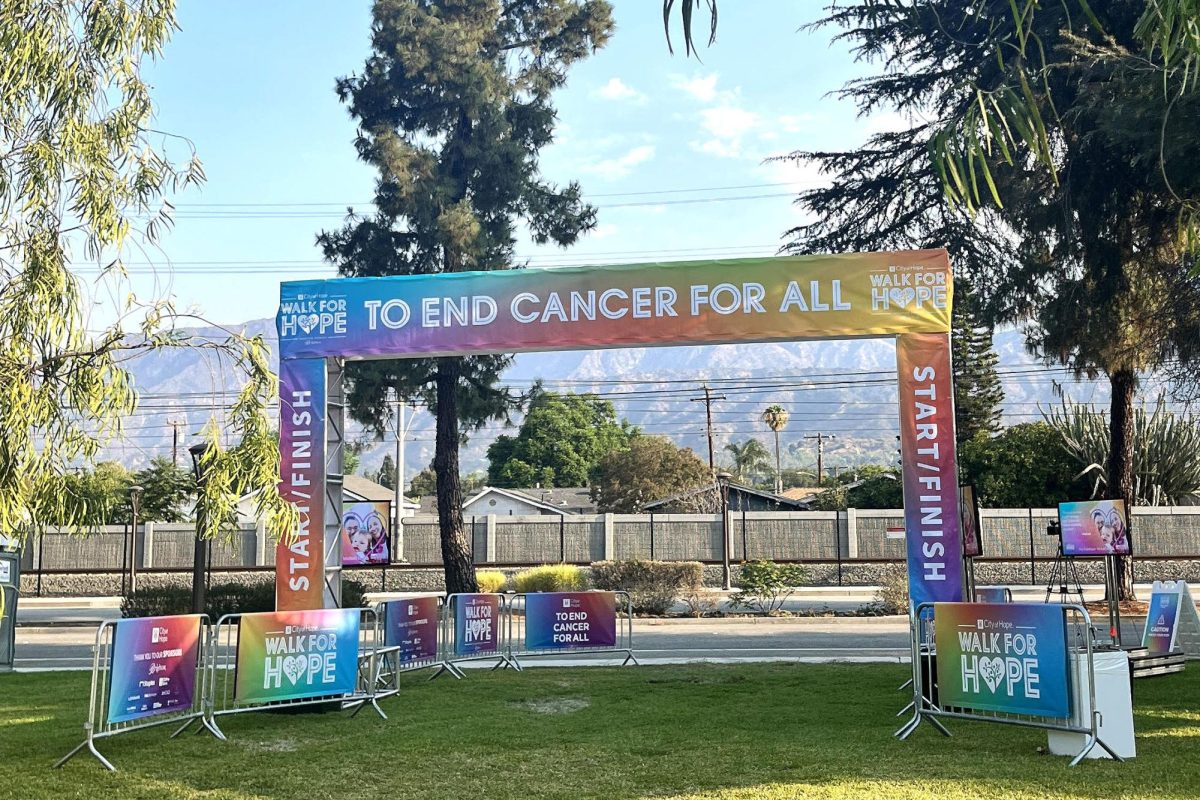In 2012, the Oracle transitioned from a print newspaper to a digital website—a change that transformed the experiences of both the readers’ and writers’ involved with the paper.
According to adviser Kristin Taylor, the new digital platform allows greater possibilities on visual and technical fronts, such as instant corrections and edits. The most recent addition of the “multimedia” tab, for example, includes videos and photo galleries that couldn’t appear in a print newspaper.
However, some writers’ nostalgia for a physical paper made the change bittersweet.
Becca Samuelsson ’13, who was an Oracle section editor since it was a club in 2007, said that working on print was “very satisfying…At first the transition was hard. However, I soon accepted it.”
“I can totally empathize with the satisfying, accomplished feeling of being able to physically hold your finished product,” added Helena Heslov ’16, who joined the Oracle staff this year.
A year prior to the switch in 2012, Taylor took over what was then the Oracle club. “I will admit that when I took the paper over, I didn’t expect to stay long. I knew I didn’t have the skills or background, and I didn’t think I had any interest in developing them.” Taylor says. “That all changed once I dove in.”
Taylor harnessed her background as an English teacher, but she still had a lot of researching and studying before taking on the class. “Journalism is an art form completely unto itself,” she said. “It [was] important to both the faculty and me that the girls have a realistic, 21st century news source.”
A year after her takeover, the Oracle became a website–constructed with the help of Assistant Librarian Luke Robertson, Director of Education Technology Chris Moiser, Webmaster and Media Specialist Daniel In and Director of IT Systems John Chen.
In March, 2014, the Oracle’s server malfunctioned, causing delays in article scheduling and perceived publishing dates, subsequently inducing the extreme stress and frustration of the staff and technical administers alike. However, after weeks of tweaking and testing alternative server hosts, In and Chen worked together in re-building the site and launching the new one.
Editor-In-Cheif Yasmeen Namazie ’14 said “When the Oracle was offline, we had to work on all of our articles on separate Google docs, making it difficult to communicate between editors and writers. However, since it’s return we’ve been able to speed up that process. We are so grateful to have our site back.”
“The success of this initial site gave me the leverage to propose an introductory journalism course for the following year, and I spent the summer developing a curriculum to support this goal,” Taylor says. “I am proud of the results… I started off a reluctant adviser, but I have become a passionate journalism teacher willing to put the time and effort in to be a great one.”
Overall, “the advantages [of having an online newspaper] outweigh the disadvantages,” says Taylor. “As a young school we are more flexible and willing to try this because we’re not mired in the tradition of the print newspaper,” she adds.
Forbes, a well known business and economics news source, describes the systematic “weakness in print advertising,” and how the decrease in abundance and popularity of printed news has made digital news the most modern outlet.

Photographer: Rosemary Pastron ’16
The Oracle’s readers are pleased with the change as well. English Teacher Jenn Babin has been reading the paper since 2011. She says, “I love how easy it is to access the paper at any point and time, and that it is a live document that’s updated often.”
The Archer Mission Statement says that the school “strengthens girls’ voices in a diverse and culturally enriching environment.” This idea parallels one of the reasons the Oracle was initially created: to construct a news outlet that fortifies students’ voices and opinions.
Co-editor-in-chief Emma Lapin says, “The new digital format allows the staff to embody Archer’s mission statement and report on a greater number of events.”









